
Learn English with the classics

|

English Audiobooks
Learn English listening and reading Audiobooks, or if you know the language, just enjoy our catalog.

English Grammar
Use these English grammar lessons for self study or to consolidate your lessons with your teacher.

Mobile Apps
Download the best mobile apps for learning English, available for Android, iPhone, iPad and MAC.
Recommended Books

Alice's Adventures in Wonderland





Carroll, Lewis In this children's classic, a girl named Alice follows falls down a rabbit-hole into a fantasy realm full of talking creatures. She attends a never-ending tea party and plays croquet at the court of the anthropomorphic playing cards.
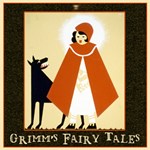
Grimm's Fairy Tales (version 2)





Grimm, Jacob and Wilhelm Children's and Household Tales (German: Kinder- und Hausmärchen) is a collection of German origin fairy tales first published in 1812 by Jacob and Wilhelm Grimm, the Brothers Grimm. The collection is commonly known today as Grimms' Fairy Tales.

Persuasion (version 2)




Austen, Jane Eight years ago, Anne Elliot fell in love with a poor but ambitious young naval officer, Frederick Wentworth. The Elliots were dissatisfied with Anne's choice, feeling he was not distinguished enough for their family, and her older friend and mentor, Lady Russell, acting in place of Anne's deceased mother, persuaded her to break off the match. Now 27 and considered a spinster, Anne re-encounters her former fiance, now a captain, as he courts her spirited young neighbour, Louisa Musgrove. The self-interested machinations of Anne's older sister Elizabeth, of Elizabeth's friend Mrs. Clay, and of Anne's father's heir, William Elliot, constitute an important subplot.

Little Women (dramatic reading)




Alcott, Louisa May Louisa May Alcott's beloved 1868 novel is about the four March girls - Meg, Jo, Beth, and Amy - who are growing up in Massachusetts during the Civil War. As the novel opens, their father is away at war, and the girls are struggling to be good and to reconcile themselves to their relative poverty. Each has her trials to deal with, and they are encouraged by their loving mother, and by their friendship with their neighbor, Theodore "Laurie" Laurence.

Around the World in Eighty Days (version 2)


Verne, Jules Mysterious Phileas Fogg is a cool customer. A man of the most repetitious and punctual habit - with no apparent sense of adventure whatsoever - he gambles his considerable fortune that he can complete a journey around the world in just 80 days... immediately after a newspaper calculates the feat as just barely possible.
With his excitable French manservant in tow, Fogg undertakes the exercise immediately, with no preparations, trusting that his traveling funds will make up for delays along the way. But unbeknownst to him, British police are desperately seeking to arrest him for the theft of a huge sum by someone who resembles him, and they will track him around the world, if necessary, to apprehend him.
This is an adventure novel of the first water, with wholly unexpected perils, hair-breadth escapes, brilliant solutions to insoluble problems, and even a love story. And can this be? - That he returns to London just five minutes too late to win his wager and retain his fortune?

Turn of the Screw, The


James, Henry The Turn of the Screw is a novella written by Henry James. It is a ghost story that was originally published in 1898. A nameless governess reports the events of two ghosts who stalk the young children she has charge over. Is she reliable, or an imaginative neurotic?

Leaves of Grass


Whitman, Walt American poet Walt Whitman’s Leaves of Grass, is a collection of poems notable for its frank delight in and praise of the senses, during a time when such candid displays were considered immoral. Where much previous poetry, especially English, relied on symbolism, allegory, and meditation on the religious and spiritual, Leaves of Grass exalted the body and the material world.
Whitman was inspired to begin Leaves of Grass after reading an essay by Ralph Waldo Emerson which expressed a need for a uniquely American poet. When the book was first published, Whitman sent a copy to Emerson, whose praiseful letter of response helped launch the book to success. Whitman’s hero, Abraham Lincoln, read and enjoyed an early version of Leaves of Grass. Despite such high recommendations, Whitman faced charges of obscenity and immorality for his work, but this only led to increased popularity of the book.
Whitman continually revised and republished Leaves of Grass throughout his lifetime, notably adding the “Drum-Taps” section after Lincoln’s assassination. The book grew from 12 poems in its first publication, which Whitman paid for and typeset himself, to nearly 400 poems in its final, “Death Bed Edition.” This recording is of the final edition.
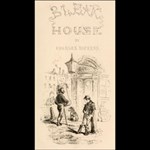
Bleak House (version 3)


Dickens, Charles The Chancery Court had jurisdiction over all matters of equity, including administration of estates, the guardianship of orphans, and disputed property disbursement. In Dickens’ time, some cases could take years to be settled, changing the lives of those involved.
Esther Summerson, a young woman raised in a tough and unloving atmosphere, is unexpectedly requested to be a companion to two teenage orphans, Richard Carstone and Ada Clare, for whom the court has appointed as guardian, John Jarndyce. They take up residence at Mr. Jarndyce’s home, Bleak House. The story of their lives and fortunes is the main thrust of the novel, and is related at times through the eyes of Esther, whose gentle point of view gives the reader a different and more intimate perspective.

Bleak House


Dickens, Charles Bleak House is the ninth novel by Charles Dickens, published in 20 monthly parts between March 1852 and September 1853. It is widely held to be one of Dickens' finest and most complete novels, containing one of the most vast, complex and engaging arrays of minor characters and sub-plots in his entire canon. Dickens tells all of these both through the narrative of the novel's heroine, Esther Summerson, and as an omniscient narrator. Memorable characters include the menacing lawyer Tulkinghorn, the friendly but depressive John Jarndyce and the childish Harold Skimpole. The plot concerns a long-running legal dispute (Jarndyce and Jarndyce) which has far-reaching consequences for all involved.
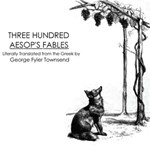
Three Hundred Aesop's Fables

Aesop Aesop's Fables or the Aesopica are a collection of fables credited to Aesop, a slave and story-teller believed to have lived in ancient Greece between 620 and 560 BCE. The fables remain a popular choice for moral education of children today. Many of the stories, such as The Fox and the Grapes (from which the idiom "sour grapes" derives), The Tortoise and the Hare, The North Wind and the Sun, The Boy Who Cried Wolf and The Ant and the Grasshopper are well-known throughout the world.

How to Live on Twenty-Four Hours a Day

Bennett, Arnold "Which of us lives on twenty-four hours a day? And when I say 'lives,' I do not mean exists, nor 'muddles through.'" -- Arnold Bennett knew a "rat race" when he saw one. Every day, his fellow white-collar Londoners followed the same old routine. And they routinely decried the sameness in their lives.-- So Bennett set out to explain how to inject new enthusiasm into living. In this delightful little work, he taught his fellow sufferers how to set time apart for improving their lives. Yes, he assured them, it could be done. Yes, if you want to feel connected with the world, instead of endlessly pacing the treadmill (or, "exceeding your programme", as he called it), you must do so.-- For time, as he gleefully notes, is the ultimate democracy. Each of us starts our day with 24 hours to spend. Even a saint gets not a minute more; even the most inveterate time-waster is docked not a second for his wastrel ways. And he can choose today to turn over a new leaf! -- Bennett believed that learning to discern cause and effect in the world would give his readers an endless source of enjoyment and satisfaction. Instead of only being able to discuss what they had heard, they could graduate to what they thought... and lift themselves completely from the deadening influence of a day at the office.

Don Juan In Hell

Shaw, George Bernard Don Juan in Hell is an excerpt (Act 3, Scene 2) from George Bernard Shaw’s Man and Superman. It is often performed as a stand-alone play. In it, three characters from Mozart’s Don Giovanni (Don Juan, Dona Ana, and the statue of the Commendatore, Dona Ana’s father) meet in Hell and, joined by the Devil, have a philosophical debate on a variety of subjects, including Heaven and Hell, men, women and marriage. In the end, they all decide where they will spend eternity.

Bill of Rights

Madison, James The Bill of Rights are the first ten amendments to the United States Constitution, and were ratified on December 15, 1791.
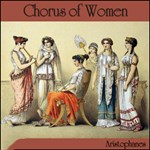
Chorus of Women

Aristophanes Volunteers bring you 16 recordings of Chorus of Women by Aristophanes. This was the Weekly Poetry project for October 21, 2012.
Aristophanes was a comic playwright of ancient Athens. This poem is from the Thesmophoriazusae; meaning Women Celebrating the Festival of the Thesmophoria, sometimes also called The Poet and the Women)
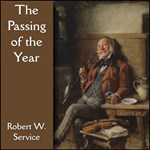
Passing of the Year, The

Service, Robert W. Volunteers bring you 8 recordings of The Passing of the Year by by Robert W. Service. This was the Fortnightly Poetry project for December 18, 2011.
Robert William Service was a poet and writer who has often been called "the Bard of the Yukon". This poem taken from Rhymes of a Rolling Stone, published in 1912.
SPONSORED LINKS

